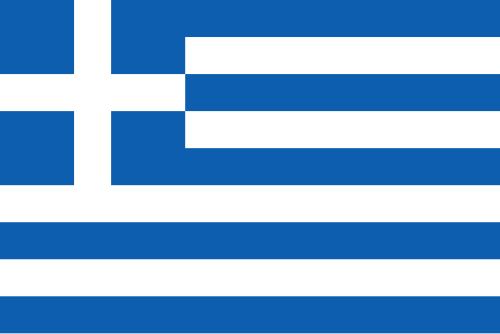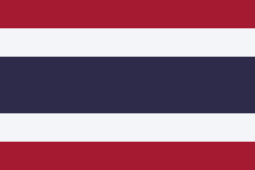
Hellenic Socialist Republic
 Leader:Premier Markos Vafiadis
Leader:Premier Markos Vafiadis - A major leader of the Communist Party in Greece, Vafeiadis was a natural choice for leadership of the State of Greece following the success of the communist takeover. Born in the Ottoman Empire on the Island of Chios, Markos and his family became Greek nationals when the military invaded and took control of Chios during the Great War. With the island devastated by the war, Markos moved to Thessaloniki with his family in 1923. Vafiadis became actively involved in politics and quickly became a leading figure in the Communist party alongside fellow leader Nikos Zachariadis. The two conducted the military campaigns against the Kingdom of Greece during the Civil War, and Vafiadis was elected to the possition of Premier with the creation of the new State
History:Incessant revanchism lead to the entrance of the Kingdom of Greece into the Great War, fighting on the side of the entente with the promises of concessions of historically Greek lands as rewards for their contributions to the war effort. The Greeks actively participated in the invasions of the Ottoman Empire, taking control of Eastern Thrace and completely occupying the Aegean. Fueled by the promise of the fulfillment of the Megali Idea, the country was devastated when they were shorthanded in their share of spoils of the dying Ottoman State. While taking control of Cyprus, the Aegean Islands, and much of Eastern Thrace, the Greeks were spurned their ambitions in Anatolia, and perhaps most insulting of all, the city of Constantinople remained firmly in the control of the Turks.
With the conclusion of the war, Greece began to enter into a period of economic decline, along with the commencement of a trend of radicalization of the general public. When the Ottomans once again were vulnerable during Ataturk's uprising, the Greeks seized upon the opportunity to take what they felt was rightfully Greek land.
Using the Aegean Islands as a base, the Greeks attempted an outright invasion of Anatolia. However, they had gravely misunderestimated the power of their enemy, and the Greek invasion was badly defeated, quickly exorcized from Asia Minor, and never once entering into Constantinople. As a concession for their defeat, the Greek Kingdom was further humiliated in being forced to cede all of Eastern Thrace to the Ottomans. With this defeat, the dream of the Megali Idea died forever, and the reputation of the then ruling Liberal Party fell into the darkness.
1936 saw a severe split in the Greek public opinion, with the population nearly entirely radicalized towards the Far Right and Far Left. Elections saw the final fall of the moderate parties, with the parliament being split nearly 55/30/15% Communist, Nationalist, and Other parties respectively. It was around this time that a former general during the Great War named Ioannis Metaxas, with support from then King George II, and the backing of the Nationalist Party, took control of the Government in Athens, putting the country into a state of martial law and instituting a purge of those elements that were deemed enemies of the Greek State, most notably Communists, Socialists, Ethnic and Religious minorities (particularly Turks and Muslims), and anyone else he saw as a threat to his power, legitimsed under the auspices of the King.
 Greek Civil War, 4 August, 1936
Greek Civil War, 4 August, 1936With the seizure of power by Metaxas, the Communist Party and supporters quickly reorganized and relocated to the north of the country, forming the Democratic Army of Greece in Thessaloniki with volunteers as well as turncoats from the Greek Army, and forming a powerful opposition to the Nationalist forces, and declaring a Hellenic Socialist Republic. For the next five years, Greece would be consumed by a violent civil war, with public opinion of Metaxas falling with the increasing brutality of his rule. On 4 August, 1941, The Democratic Army of Greece entered into Athens, capturing Prime Minister Metaxas and having him quickly tried and executed by hanging. King George II fled to exile in Britain, with the communists declaring the abolition of the Monarchy.
With the creation of this new socialist state, the Greek government set about fixing the state after the civil war, with massive seizing and redistribution of privately owned land prior to the revolution, and the establishment of social programs to improve the quality of life of the average Greek citizen, as well as the gradual purging of the influence of the Greek Orthodox Church from the legislation of the country, with increasing restrictions on public expression of The Church. The new government also turned it's attention towards its neighbors, with the new mission to spread the socialist revolution to all Greeks. Greece renewed its claims to Eastern Thrace, much to the chagrin of the Ottomans, and Greek espionage forces fomented the revolt of Northern Epirus and its pledge of integration into the Hellenic Socialist Republic, with Greek forces occupying the area in 1951, though the area is still recognized as a part of Albania by much of the international community.
Entering into the 1960s, the Hellenic Socilist Republic is a budding new state, a strongly socialist government that seeks to reclaim those areas it feels it has lost to the Ottomans. Having finally recovered from the scars of the civil war, the future has endless potential for Greece.
Other:Greek espionage is active throughout the Balkans and Anatolia, especially in areas of heavy Greek popluation, such as in the borderlands with the other Balkan States and in western Anatolia and Eastern Thrace.
Greece and Albania entered into a ceasefire in the 50s that continues to this day, however the Epirus Incident remains a point of tension between the nations.
The Communist Party of Greece exists as the only legal political party in the country
Greek is the sole official language, however Turkish, Albanian and "The Romanian dialects" (Romanian, Aromanian and Megleno-Romanian) all have special minority status, thus allowing for state funding of institutions such as schools using these languages as mediums, in designated minority areas.
DemographicsThe population of the state as a whole is 8.5 Million, the vast majority of which are ethnic Greeks (90%), with Turks being the second most populous group at 6%, followed by "Slavic" (2%), Albanians (1%), Romanis (0.8%) with all others making up about 0.2% of the Greek population. Greek is the mostly widely spoken language, spoken as the native langauge of about 95% of the population and understood by all, with Turkish coming second with 4% speaking it as a mother tongue, and about 13% of the country understanding it as a second language. French is the most widely studied foreign language in the country with 60% of students taking a course in it, and about 30-45% of the population capable of speaking it, followed by English, studied by 30% of students and spoken by about 20% of the population.
The state is forbidden from collecting data on religious adherence, but it is estimated that 80% of the country is Christian, (further subdivided into Eastern Orthodoxy at 95% of Christians, with Catholics at 3%, and all others at 2%), 10% Atheist/Irreligious, 8% Muslim (nearly all of which are Sunni Muslims), 2% all else. The Government of Greece officially promotes State Atheism, and all public expressions of religion are heavily restricted.
While the south is nearly entirely Greek due to extensive deporations and ethnic cleansings during the Metaxas regime and after the civil war, the north of the country is notable for its vibrant Turkish minority community, many of whom can trace their ancestry all the way back to the Ottoman period. Many other Turks are leftist aligned immigrants from the Ottoman Empire. And while some may fear assimilation of future generations into the predomiant Greek culture, the Turkish minority is ironically perhaps the most patriotic and supportive group of the communist regime.
The north of the country is notably more left-leaning and liberal than the south, which is characterized as a strongly conservative area, the Peloponesse being a particularly conservative area. Thessaloniki is known as the most liberal of cities, while Sparta has a reputation as a stronghold of conservativism.
MilitaryThe Democratic Army of Greece Symbol of the Democratic Army of Greece
Symbol of the Democratic Army of Greece The Democratic Army of Greece (Greek: Δημοκρατικός Στρατός Ελλάδας,
DSE (ΔΣΕ)) is the standing military of the Hellenic Socialist Republic. Formed in 1936 as a response to the royally sanctioned military takeover of Ioannis Metaxas and attrocities commited in his name, the DSE was based out of the City of Thessaloniki, where its main headquarters can still be found today. While at its height in the Greek Civil War, the army had membership of 50,000, Today the military is comprised of about 34,000 members.
The Popular Civil GuardThe Popular Civil Guard (Greek: Λαϊκή Πολιτοφυλακή,
PL, (ΛΠ))is the Military Police force of the Hellenic Socialist Republic. The Guard is a feared force by many, known for its acts of domestic surveillance, removal of dissidents, and espionage activities. Behaving as a kind of Secret Police, the PL is tasked in keeping the domestic integrity of the state strong, as well as carrying out acts of spying and to instigate socialist uprisings in neighboring countries. Seemingly omnicient, the people of Greece are not without good reason to fear the Popular Civil Guard.
Important PeopleDefense Minister Nikolaos "Nikos" Zachariadis -
Greek Minister of War - Born as the son of a tobacco farmer in East Thrace, Nikos Zacharadis would go on to become a major military commander of the Communist forces of Greece. Once the civil war was completed, Zacharadis was appointed as the head of the Ministry of National Defense. Now an old man, Zacharadis can no longer participate on the battlefield, but his experience makes him a valuable asset in the military ambitions of the Greek State.
General Dimitrios Partsalidis -
Head General of Democratic Army of Greece - An exile from Treibizond who was forced out during the Pontic Greece genocide, Dimitrios Partsalidis acts as a second brain in the actions and planning of the Democratic Army of Greece along side Zacharidis.
Stephanos Papayannis -
Head of the Popular Civil Guard - Papayannis is the head of the Popular Civil Guard, and a man known for his zealotry in regard to Communism and his brutal, draconian policies.
Vasilis Bartziotas -
Appointed Successor of PCG - Second in command to Papayannis










